Flowers in Persian Proverbs

گلها و گیاهها
(C1 مُناسب برایِ فارسی آموزانِ سَطح)
سالهایی نهچَندان دور، پیش از بهوجود آمدنِ شهرهایِ بزرگ و آسمانخَراشها، انسان به طَبیعت نزدیکتر بود و شاید به همین دلیل هم در بیشترِ زبانها اِصطِلاحات و ضَربُ المَثَلهایِ زیادی با واژههایِ مربوط به طَبیعت وجود دارد. زبان فارسی هم از این قاعِده مُستَثنا نیست. در فَرهنگِ ایرانی، مانند بِسیاری از فرهنگها، گل و گیاه نِشانهی لِطافت، زیبایی، اِحساساتِ شاعرانه و رُمانتیک و رُخدادهایِ خوشایَند است. اما زیباییِ یک زبان به صَنایعِ اَدبی و بازیهایِ کلامیِ آن است. از این دیدگاه، فارسی، زبانِ شیرینی به حِساب میآید. در زبانِ فارسی ضَربُالمَثلهایی با واژه یِ گُل داریم که در نگاهِ اول شاید مَعنی مُثبتی داشته باشند، اما چون کاربُرد کِنایی دارند، به راحتی نمیتوان مَعنی آنها را حَدس زد. برای همین، مدرسانِ فارسیموند اینجا هستند تا برای یادگرفتنِ شیرینی های زبانِ فارسی به شما کمک کنند و بعضی از آنها را به شما مُعَرِّفی کنند.
Flowers and Plants
(Farsi Level: C1)
In the past, people had a more nature-friendly life; therefore, there created many expressions and sayings with nature as the keyword. Persian is not an exception. In Iran’s culture and Persian literature, flowers and plants symbolize gentleness, beauty, romanticism, and pleasant feelings. But the beauty of a language depends on its figurative speech and how the words are used metaphorically. Persian is counted as a sweet language in this sense. For instance, in Farsi, you can find proverbs with flowers as a keyword that may seem to have positive meanings. But they have ironic usage, so it is not easy to guess what they mean. Here is where you may need our Farsi tutors’ assistance. You can learn two of these interesting sarcastic Persian proverbs in this article.
Add Insult to an Injury | گل بود به سبزه نیز آراسته شد
[gol bud be(h) sabze(h) niz ârâste(h) šod]
در فارسی، آراستَن یعنی چیزی را تَزئین کردن و زیباتر کردن. اگر به واژههای این جمله نگاه کنیم، فکر میکنیم این جمله معنیِ زیبایی دارد. گل، نَمادِ یک اتفاقِ خوب یا چیزِ زیبا است که با سَبزه تَزئین شده است تا بهتر و زیباتر شود. اما در زبانِ فارسی، این ضَربُالمَثَل به طَعنه استفاده میشود پس معنیِ عَکس دارد. وقتی این جمله را میگوییم، مَنظورمان این است که یک مشکل یا اتفاقِ ناخوشایند با یک بدشانسی یا اِتفاقِ دیگر بدتر هم شده است. مثلاً در هوای بارانی و تِرافیکِ شدید، تَصادُف هم می کنید. اینجاست که «گُل به سَبزه آراسته می شود.» انگار که بدی هوا و بارانِ شدید برای خراب کردنِ روزِ شما کافی نبوده است. این ضربالمثل در زبان انگلیسی معادلِ نسبتاً نزدیکی دارد.
In Farsi, “ârâstan” means decorating something and making it more beautiful. At first glance, the sentence brings up a beautiful image of nature. A flower represents the beauty that becomes even prettier when accompanied by some greeneries. But this proverb is used sarcastically in Farsi, so it has the opposite meaning. We use the saying when an unpleasant incident becomes worse by another happening. For instance, when your car crashes on a rainy day when you are stuck in a traffic jam, you can say, “gol bud, be sabze(h) niz ârâste(h) šod,” as if road congestion and rain were not enough to ruin your day. A close English equivalent for this proverb can be “added insult to an injury.”
گفتگوی یک
زهره: بِهِت گفتم نیایم این مهمونی، گوش نکردی.
سیما: آره، حَق با تو بود. اَصلاً از فَضای مهمونی خوشم نیومد.
زهره: اَه، این پسره اینجا چیکار می کنه؟
سیما: کی؟
زهره: همونی که ازش بدت میاد، رامین.
سیما: به به، «گل بود به سَبزه نیز آراسته شد.»
goftegu-ye yek
Zohre(h): behet goftam nayâym in mehmuni, guš nakardi.
Simâ: âre(h), haq bâ to bud, aslan az fazâ-ye mehmuni xošam nayumad.
Zohre(h): ah, in pesâre(h) injâ či kâr mikone?
Simâ: ki?
Zohre(h): hamuni ke(h) azaš badet miyâd, Râmin.
Simâ: bah, “gol bud, be sabze(h) niz ârâste(h) šod.”
Dialogue One
Zohre(h): I told you not to come to this party, but you didn’t listen.
Simâ: yeah, you were right. I didn’t like the atmosphere.
Zohre(h): Yuk, what is this guy doing here?
Simâ: who?
Zohre(h): The one you hate, Râmin.
Simâ: Pfff, “added insult to my injury”
To Mess up/ To Screw up | دستهگُل به آب دادن
[daste(h) gol be(h) âb dâdan]
«دَسته گل به آب دادن» از ضَربُالمَثَل قَبلی هم عَجیبتر است. دَسته گل را معمولاً برای هَدیه دادن به عَروس، تَوَلد یا اتفاق های خوب میخریم و به آب اَنداختن آن هم کار ناپَسَندی نیست. اما این ضَربُالمَثَل را وقتی استفاده میکنیم که کار مُهمی را ناخواسته خَراب میکنیم. شاید بد نباشد داستان این ضَربُالمَثَل را بخوانیم تا دلیلِ کاربُردش را بهتر مُتِوجِه شویم.
روزی روزگاری مرد بدشانسی بود که هرجا میرفت و هرکاری می کرد خَراب میشد. یک روز، برادرِ این مرد تَصمیم به اِزدواج گرفت. اما چون میترسید روز عَروسیش خَراب شود از این مردِ بیچاره خواست از شهر بیرون برود. او هم پَذیرفت و به کوه رفت. در آنجا یک دَسته گُلِ کوهی چید و به رودخانه اَنداخت تا آب آن را به باغی بِبَرَد که عَروسی در آنجا بَرگُزار میشد. روزِ بعد وقتی به شهر بَرگَشت، دید که عَروسی به عَزا تَبدیل شده است چون دو بچه برای گرفتنِ دسته گل داخلِ رودخانه پریده و خَفه شده بودند. در این داستان هم میبینیم کسی که «دَسته گل به آب می دهد» قَصد و نیتِ بدی ندارد اما همیشه کار را خَراب میکند.
The other interesting Persian flower-related proverb is “daste(h) gol be âb dâdan,” which literally means throwing a flower in the water. A bouquet is usually a suitable wedding or birthday gift, and throwing it into a river or a lake should not add a negative connotation to the sentence. However, this proverb means “to ruin one’s happiness or to screw up something but unintentionally.” How come? Let’s read the story of the proverb to understand.
Once upon a time, there was an unlucky man who would ruin whatever he intended to accomplish. On his brother’s wedding day, this poor man decided to leave the village and go to the mountains to prevent disaster. While walking in the mountains, he made a bouquet of mountain flowers and threw them into a river passing by the wedding garden. The light-hearted, trouble-maker man wanted to participate in his brother’s happiness. But the day after, when he returned to the village, he had to attend a funeral. Two kids who had jumped into the river to take out the bouquet drowned.
گفتگوی دو
مامان: این گلدون که رو میز بود کِی شکست؟
شایان: امروز صبح.
مامان: چرا؟
شایان: داشتم میزها رو تمیز می کردم، دستم خورد بهش، افتاد زمین.
مامان: پس «بازم دسته گل به آب دادی.»
شایان: ببخشید.
goftegu-ye do
Mâmân: in goldun ke(h) ru miz bud key šekast?
Šâyân: emruz sobh.
Mâmân: čerâ?
Šâyân: dâštam mizhâ ro tamiz mikardam, dastam xord beheš, oftâd zamin.
Mâmân: pas bâz ham “daste(h) gol be âb dâdi.”
Šâyân: bebaxšid.
Dialogue Two
Mâmân: When did this vase on the table break?
Šâyân: This morning.
Mâmân: Why?
Šâyân: I touched it this morning while dusting the tables, and it fell down.
Mâmân: you “messed up” again.
Šâyân: I’m sorry.
گفتگوی سه
مهتاب: چرا امروز اینقدر عصبانی هستی؟
محبوبه: هیچی، باز این زهرا خانم «دسته گل به آب داده.»
مهتاب: چیکار کرده مگه؟
محبوبه: کلی زحمت کشیده بودیم برای نیلوفر مهمونی بگیریم تا علی سوپرایزش کنه و تو مهمونی ازش خواستگاری کنه. زهرا از دهنش پریده و به نیلوفر گفته.
مهتاب: از دستِ این زهرا. نمیتونه حرف رو دو روز نگه داره. پس حسابی «گند زده.»
محبوبه: آره، دستم بهش برسه میکُشمش.
goftegu-ye se(h)
Mahtâb: čerâ emruz inqadr ‘asabâni hasti?
Mahbube(h): hiči, bâz in zahrâ xânum “daste(h) gol be âb dâde(h).”
Mahtâb: čikâr karde(h) mage(h)?
Mahbube(h): koli zahmat kešide(h) budim barâye nilufar mehmuni begirim tâ ‘Ali surprizeš kone(h)-o tu mehmuni azaš xâstegâri kone(h). Zahrâ az dahaneš paride(h)- o be nilufar gofte(h).
Mahtâb: az dast-e in Zahrâ. Nemitune(h) harf ro do ruz negah dâre(h). pas hesâbi gand zade(h).
Mahbube(h): âre(h). dastam beheš berese(h) mikošameš.
Dialogue Three
Mahtâb: Why are you so angry today?
Mahbube(h): Nothing, this Zahrâ “messed up everything” again.
Mahtâb: What did she do?
Mahbube(h): We tried hard to plan for a party so that Ali could surprise and propose to Nilufar. But Zahrâ revealed everything.
Mahtâb: Zahrâ, she cannot keep a secret for two days. So, she really “messed up” this time.
Mahbube(h): Yep, I’ll kill her if I find her.

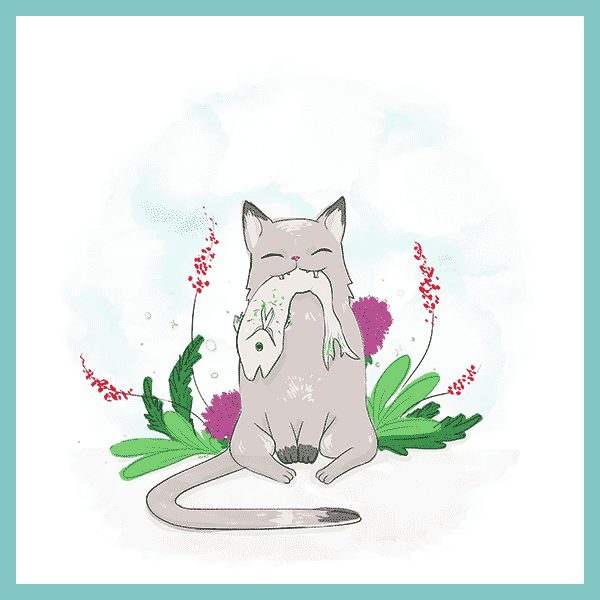
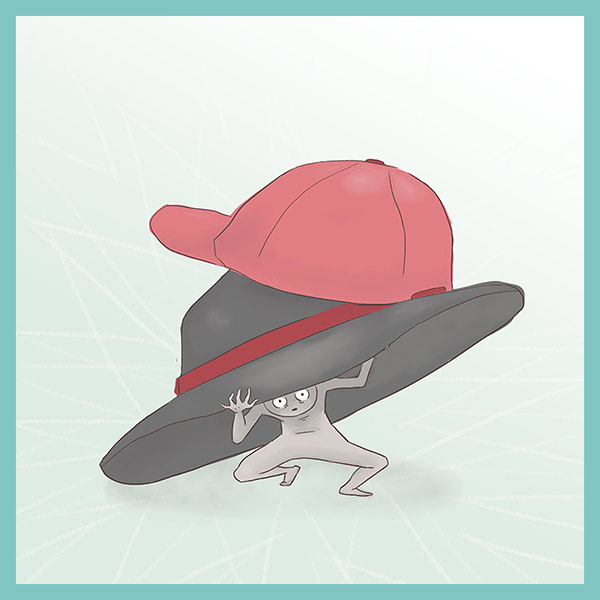
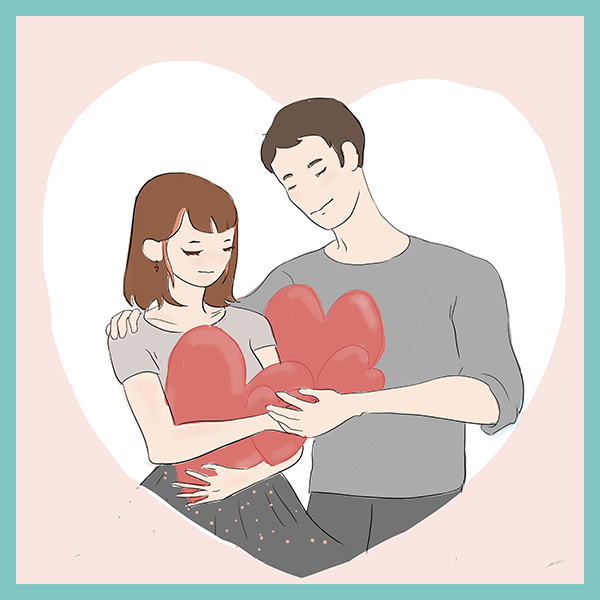
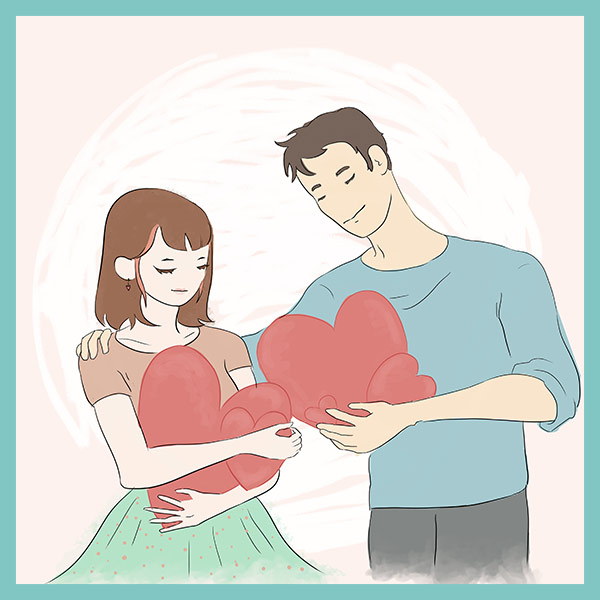
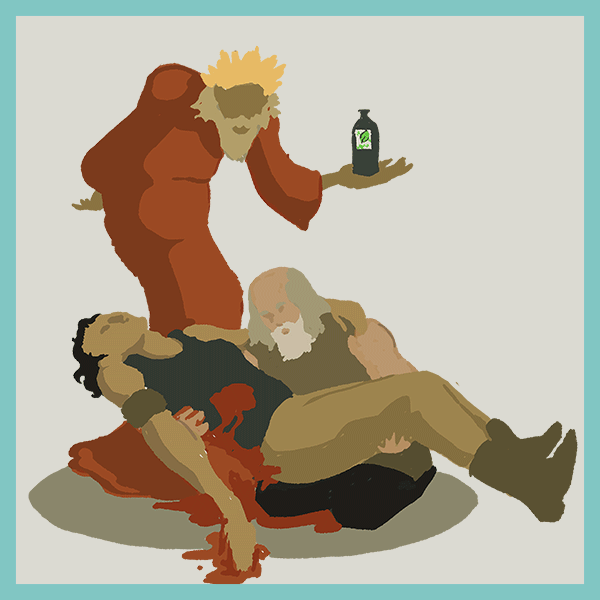
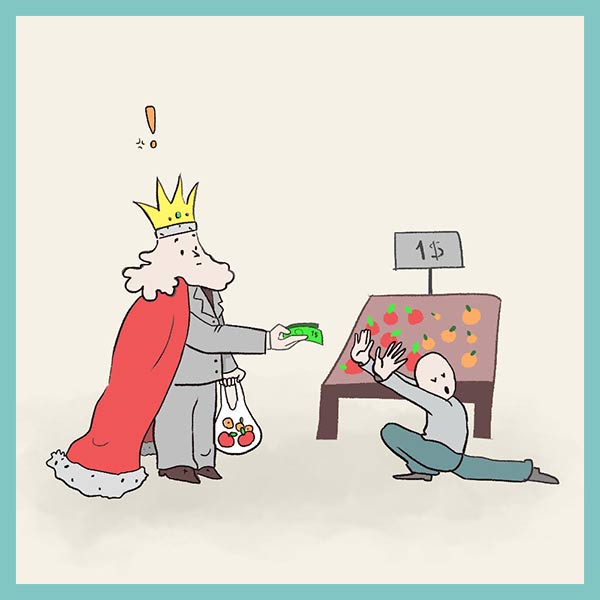


Leave A Comment